When writer Claire Low pulls out her credit card in a shop, she’s confronted with what seems like a cryptic question: “Is it worth the cost of your freedom?” Carefully typed out and taped to the card, the message is a reminder to herself that every purchase she makes should be thoughtful and considered.
“I read something recently that suggested you should think about money as units of freedom, and the idea really resonated with me,” she says. “So now I think, ‘Do I want to waste my freedom units on a new bag?’ I want to feel free from worrying about money, not weighed down by stuff.”
Low is not alone in feeling this way. In fact, the 33 year old is one of the new breed of consumers who have decided to cut back on what they buy and re-use and recycle what they already own. A new report by respected US trend forecasters WGSN says this movement towards consuming less is part of “the end of more” – the idea that we’ve reached peak consumption and, for the sake of the planet, we have to think about ways to live more sustainably.
Low-impact consumerism – buying less and buying better – isn’t just a fringe activity anymore; in the coming years, says WGSN, it will become mainstream.
This trend will be good for the planet – and arguably good for us. One of the key demographic groups identified by the report is the (kinda) catchily named “Compressionalists”. They are those of us who feel burnt out and overwhelmed, and are looking for ways to simplify our lives.
“In a heavily divided society, pressure is one unifier bridging all socioeconomic gaps,” says WGSN. “From burnt-out millennials to time-poor boomers, everyone is suffering.” We want simpler, more streamlined shopping experiences, services like coffee delivered to their door (in reusable cups) … and less stuff.
This movement towards consuming less is part of “the end of more”
Living with less can be liberating, as Low discovered.
“I had a terrible shopping habit,” she says. A move to Sydney six years ago, with a concomitant recognition of just how many bags she actually owned, led Low to rethink her attitudes to spending. “I started to feel that the central motif of my life couldn’t be the ownership of stuff,” she says.
“And I started to track my spending and I worked out, for example, that I spent more money on coffee than on groceries. Now I drink instant coffee from Aldi and I’m evangelical about it. I keep my discretionary spending to $400 a month, which is a lot less than previously, and I feel much happier.”
Some people have always lived sustainably but they were often regarded as fringe-dwellers by a society that until recently prized consumption over pretty much everything else. The movement towards simplification really started to gain momentum with the rise of hipsters (remember them?), who espoused artisanal living and growing your own veg as a way of differentiating themselves from the mainstream, says RMIT marketing expert Dr Janneke Blijlevens.
“Now all of us are more aware of the bigger and more complex problems of the world,” she says. “Social groups are forming around sustainability and buying more thoughtfully is one way of showing you belong.”
I spent more money on coffee than on groceries
This is an interesting reversal of the way we have always viewed possessions, which we’ve long used as a way to signify status. As Professor Bruce Hood, behavioural psychologist and author of new book Possessed: Why We Want More Than We Need, told me: “The earliest artefacts were jewellery and other items that took time and skill to produce. We made items to adorn the body, to signify our beliefs and status in the group.”
Unfortunately for the planet, we’ve now become much faster at producing covetable things. In a Nature paper, Hood explains that between 1860 and 1920, for example, US production increased 12-14 times, whereas the population only tripled. “The amount of stuff we could make outstripped demand, which needed stimulating to maintain economic growth.”
So marketing gurus helped brands ramp up the rhetoric that what you possessed reflected your identity, that you really are what you own.
Now there are signs that ownership isn’t such a huge driver for millennials, at least.
Economically, it’s more difficult than ever to own your own home, and Blijlevens points out that if you live in an urban environment, services such as Uber, GoGet car shares and bicycle hire on the street, make ownership unnecessary. Also, she says, we can feel overwhelmed by the amount of stuff available for us to buy. “We tend to get overwhelmed by too much choice.”
Possessions used to signify status
Alicia Tindall, a Sydney mother of three, says she experiences a similar feeling when she visits a Westfield mall. “I don’t really love shopping, although I do like nice clothes, and whenever I go there, I end up feeling down or just a bit ‘off’.”
Like Low, Tindall has dramatically reduced the amount she buys, particularly purchases for herself and her home. “Two years ago, we moved house for the second time in two years, and I found myself carting around the same stuff that I wasn’t actually using,” she says. “I was also spending a lot of time tidying and cleaning, simply because we had so many things.”
After reading blogs devoted to minimalism, Tindall found herself declaring to a group of friends over dinner one night that she was going to forego any new purchases for a year (apart from items she needed for the kids).
“I couldn’t quite believe what I was saying,” she reflects now, with a laugh. “But once I’d said it, I had to follow through.”
Tellingly, for the first three months Tindall often found herself wandering into shops for an unnecessary browse, but after a while she found relief from the pressure to buy stuff. “I didn’t shop mindlessly for groceries, either – I knew exactly what was in the cupboards, she says. “I also tried to get rid of the things we didn’t need.”
Recycling unwanted clothes is a key way to reduce consumption of valuable raw resources like water – something that WSGN identified as critical for the planet in the next few years. We need to move to what’s called a ‘circular economy’, they say, in which raw materials like cotton are used over and over again (rather than the current ‘linear economy’, where we grow cotton, use it for a t-shirt and then deposit it in landfill).
Progress has been made in some areas – 50-60 per cent of Australian waste overall is recycled. But textiles are a problem. Australians are the world’s second-highest per capita consumers of textiles and more than 501 million kilograms of unwanted clothing ends up in landfills across the nation each year.
Part of the issue is what Hood describes as our essentialist attitude to second-hand clothes. Even though we know rationally that clothes are inanimate objects, we imbue them with a sense of their wearer. As Hood observes, people will pay inflated prices for George Clooney’s jumper, but few of us would feel happy wearing a t-shirt that had belonged to a serial killer like Ivan Milat.
However, there are signs that here, too, attitudes are starting to change. The resale market is booming and even mainstream retailers such as Country Road are partnering with rental sites such as Glam Corner. And as the trend to low-impact consumerism increases, more of us will be buying less anyway. This change is inevitable, says Blijlevens, but it’ll be gradual. “The internet changed everything, but we didn’t feel it as a sudden shock,” she observes.
Although Tindall has since relaxed her shopping ban, she remains a considered shopper. “I have a capsule wardrobe now and I know what I like, and what I need,” she says. “I have more time to spend with the kids. It’s liberating.”




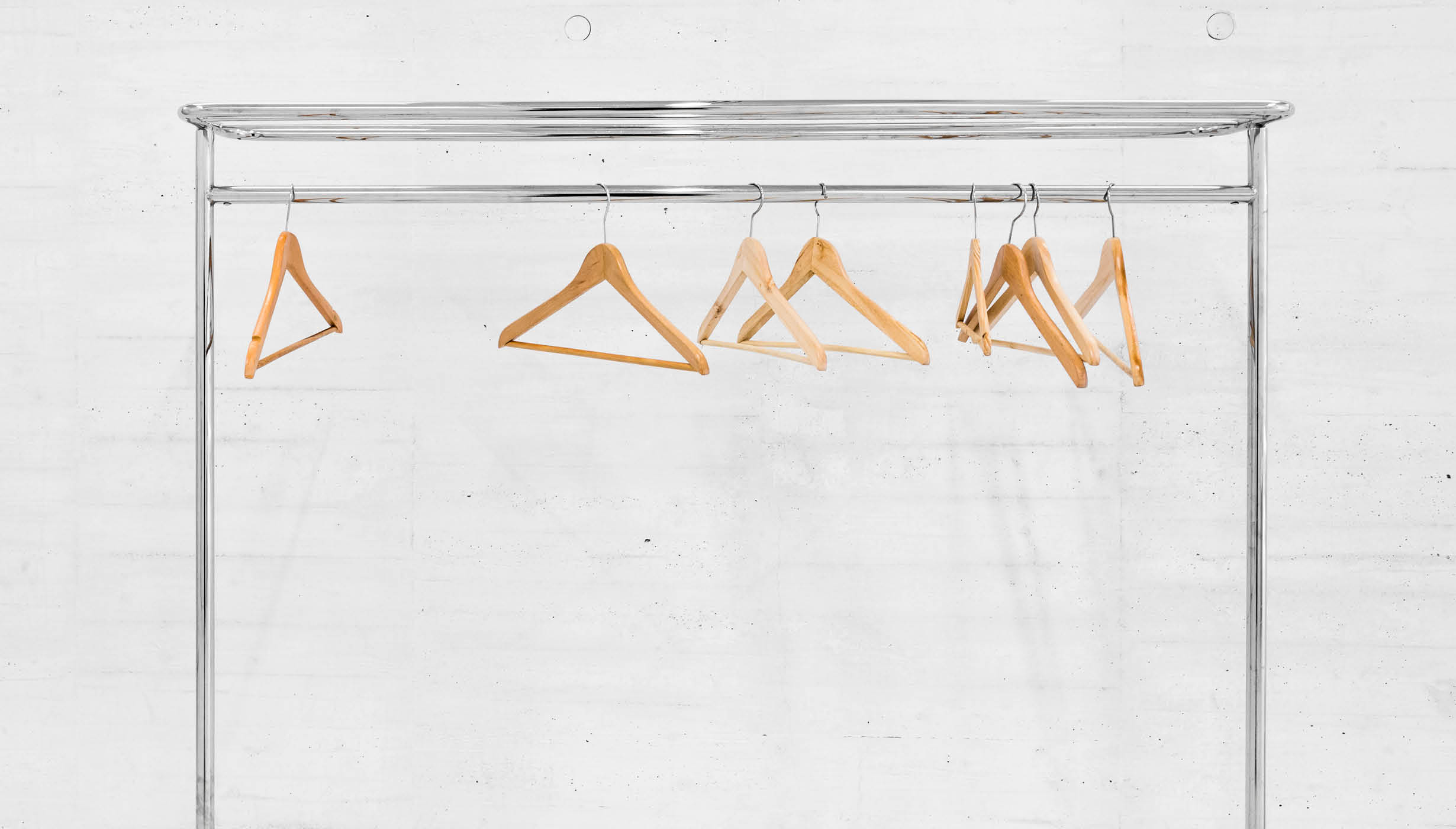



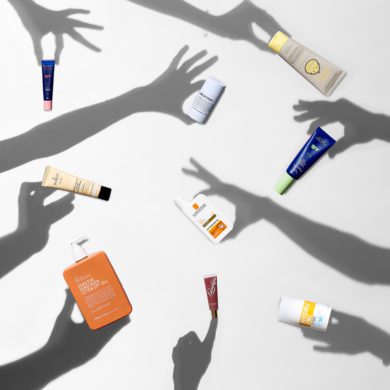
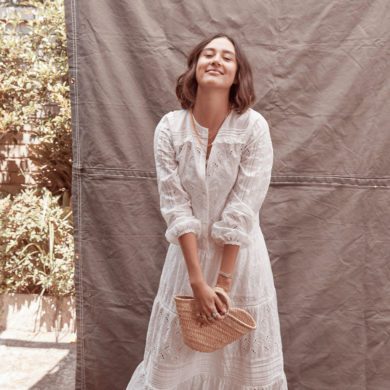
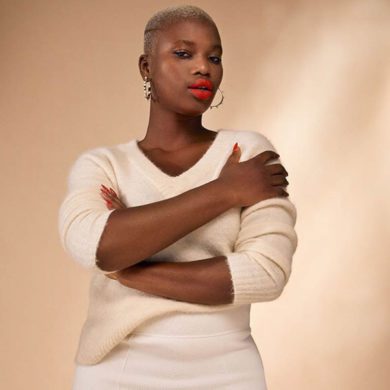

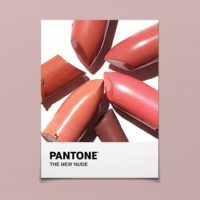

No Comments